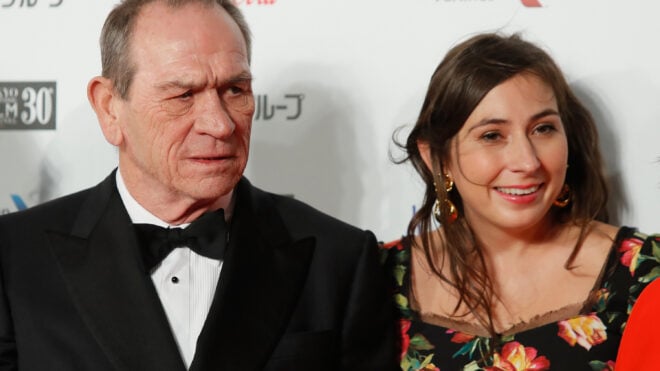
Tracy Dixon-Salazar is an extraordinary woman. She could have let her daughter Savannah's epilepsy diagnosis defeat her, but instead she got curious. This curiosity led her to get her PhD. In the process, she was also able to help her daughter’s quality of life drastically improve. She told her remarkable story to Today in the hopes of helping others.
Savannah was not born with epilepsy. She had her first seizure at age 2. By age 3 she was experiencing hundreds of them a day.
Tracy thought Savannah’s first seizure was a choking incident. She called 911 for emergency medical help. “Both my husband and I went at the same time, ‘What’s a seizure,’” she recalled. “We actually went six months and she didn’t have any and then at the age of 3 they came back hard and fast. She started having hundreds of seizures a day.”
At first, doctors were hesitant to label Savannah’s seizures. They didn’t want to stigmatize her and called them “spells” or “episodes.” Tracy learned of her daughter’s epilepsy diagnosis by reading her chart for herself. No doctor ever told her.
More from LittleThings: When Antiseizure Medications Fail, Parents Of Epileptic 5-Year-Old Turn To Medical Marijuana
Tracy didn’t understand how her daughter developed epilepsy. There was no family history or traumatic injury to explain it. At age 5, Savannah developed Lennox-Gastaut syndrome because of her frequent seizures. This condition occurs in severe cases of epilepsy and causes developmental delays.
“No one’s born with LGS. LGS is something that develops over time when the brain is barraged by seizures,” Tracy explained. “Your brain is also trying to develop. She was 3 years old, and her brain was trying to put itself together … she’s got all this abnormal seizure electricity going on, so the brain wires itself wrong.”
This was not easy to navigate at home. “The messaging [in the '90s] was ‘You can live a full life with epilepsy,’” she explained. “None of this was what we were experiencing at home. Savannah stopped developing. We’ve had to resuscitate her. She’s in the hospital all the time.” This is when Tracy made the decision to learn everything she could.
Before Savannah was born, Tracy had graduated high school and served in the military. At first, she enrolled in English college classes to better understand the medical literature she was reading. She took a science course and really enjoyed it.
“I was just trying to understand how this kid, this healthy 2-year-old could go from being totally normal to having seizures and her life derailed. And reading those [medical studies] drove me to go to college,” she explained. “I needed an outlet for the pain.”
Over 12 years, Tracy eventually earned her PhD in neurobiology and finished a three-year post-doctoral program. She didn’t think her studies would help her daughter but she needed to do something. Little did she know.
Tracy started working in a lab that was examining the genetics of epilepsy. Savannah’s case was genetic but she did discover that she had “calcium channel mutations." This meant that too much calcium was causing her seizures. Tracy took this new information to Savannah’s doctors and they put her on a calcium blocker.
“There’s actually a drug that blocks these exact calcium channels,” Tracy explained. The results were amazing. “It worked within two weeks. She went from having 300 seizures a month and going into these nonstop seizures a couple of times a week … to a 95% reduction in her seizures and it’s been 11 years, which is pretty incredible.”
This medication has also helped Savannah developmentally. For many years she was essentially cognitively 3 years old because of all of the brain damage from the seizures. She has made big strides since starting the medication.
“She just exploded in her personality and her talking and her walking and her potty training and oh my gosh she is just so sassy,” Tracy explained. She now loves boys, puzzles, and singer-songwriters' music.
Together Tracy and Savannah work as advocates for the disease. They are working to find their place in the world that isn't always kind to them. She tells her story so others can learn from it.




